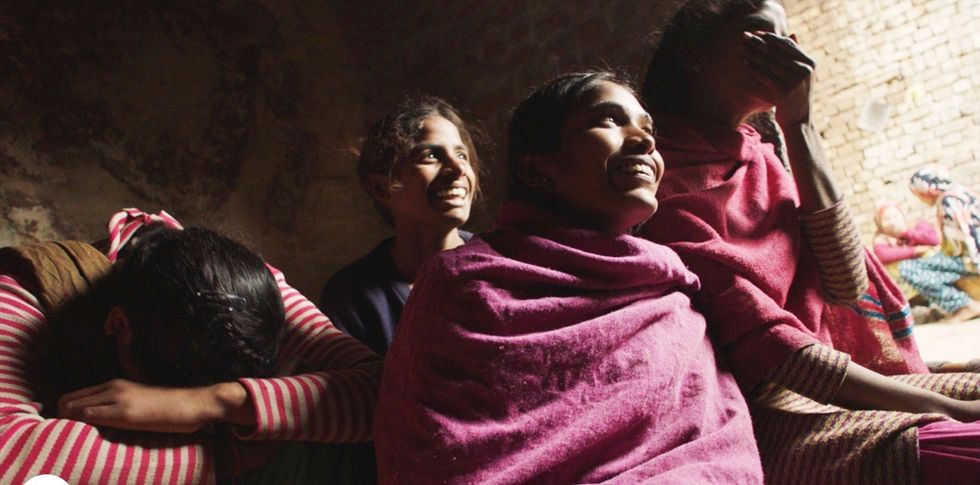The beautiful, 25-minute documentary "Period. End of Sentence" follows the lives of women in the Harpur District of India after being introduced to the pad machine developed by Arunachalam Muruganantham. The pad machine was designed to empower women by giving them not only an affordable sanitary napkin but also the equipment to make it.
However, the documentary focuses far more on the lack of discussion and knowledge surrounding periods in India. The film begins with ordinary school girls who are extremely shy to talk about what a period is, and how they deal with it. One girl in class is asked to explain the concept and finds herself unable to speak from embarrassment. This embarrassment stems from a greater problem: being ashamed of one's body.
Women shy away from talking about their periods because they are told it is a bad, dirty occurrence. The men shown in the documentary further prove society's abandonment of women's issues. A group of young men is asked what menstruation is and one refers to it as an "illness" which women suffer from. Older men in the community respond to the pad machine with ambivalence or play ignorant to its true function. Men act as if periods do not exist, and women are taught they must hide their periods so as to not offend the men. Muruganantham cements this fact when he says, "menstruation is the biggest taboo in my country."
As an Indian-American, this tale of period shame is all too familiar. An inspiring, strong woman named Sneha in the District participates at the factory where the pads are made and challenges what Indian society tells her to think about periods, even her religion. Hindu women are expected to refrain from going to the temple and praying during their periods because they are unclean and impure. I remember my mother telling me this rule, and not thinking twice about it. But Sneha says, "Because the goddess we pray to, she's also a woman, just like us. So, I don't agree with this rule."
Women, in being told to see their bodies as an "illness" and "impure" are disempowered, left to spend the rest of their lives paying penance for this so-called crime of menstruation. My blood is a sign of my ability to give life... my gift to the world.
The pad not only gives the women an easier, more hygienic life, but the pad machine gives the women in the film a sense of purpose. They work together to help other women and even earn money. This financial independence makes their husbands and brothers respect them, the women say. While shop owners, almost always men, refuse to stock these low-cost sanitary napkins, the women go on foot to make the sales themselves, proving that real change depends on women.
As much as this is an Indian issue, developed nations are not exempt. The United States still maintains a luxury tax on pads and tampons. No matter where one goes in the world, there is a prevailing mentality of ignoring the fact that periods do in fact exist. A luxury tax implies that periods are a choice, rather than a natural occurrence and all women know this is not true.
Women's health has been put on the back burner for centuries because our bodies are viewed as replaceable and machine-like. However, women's bodies are "creators of the universe." The creators are demanding respect, in every corner of the world. Where there is knowledge, expect action.





































